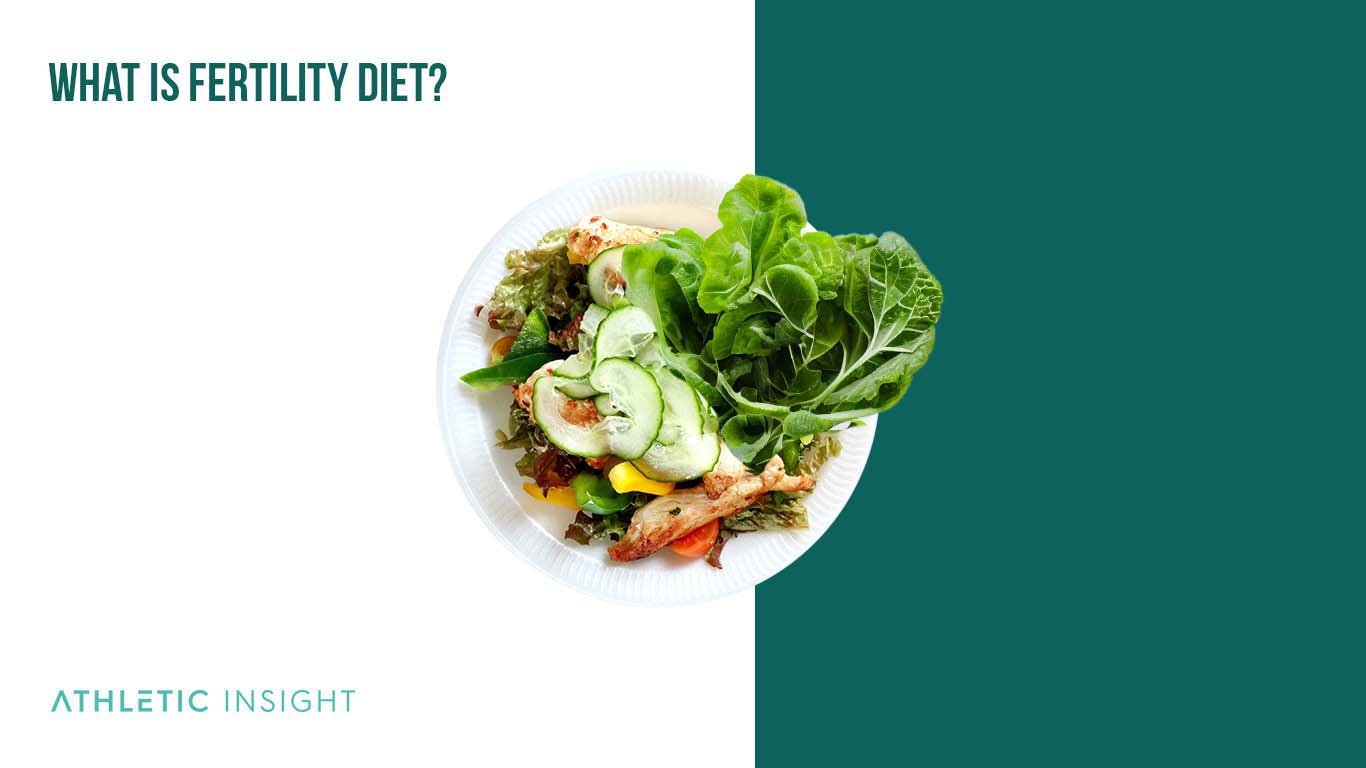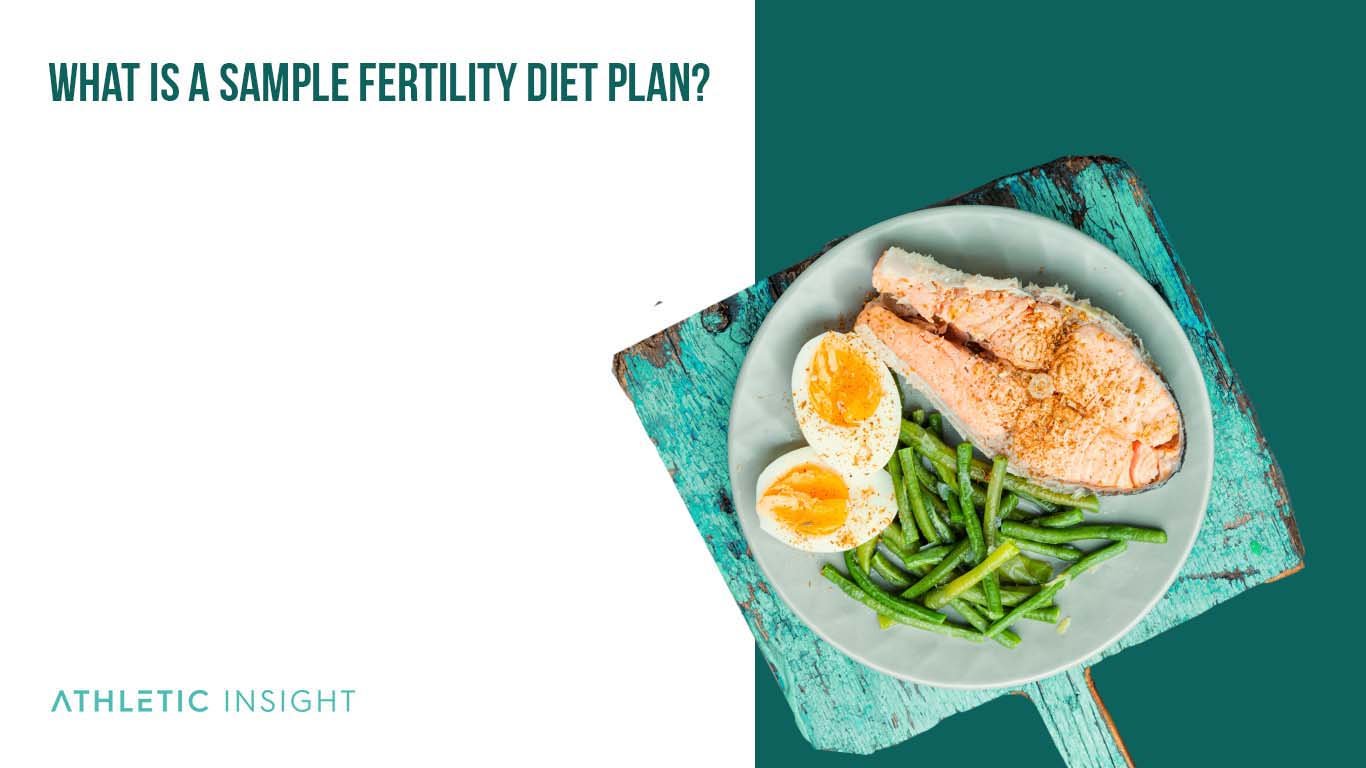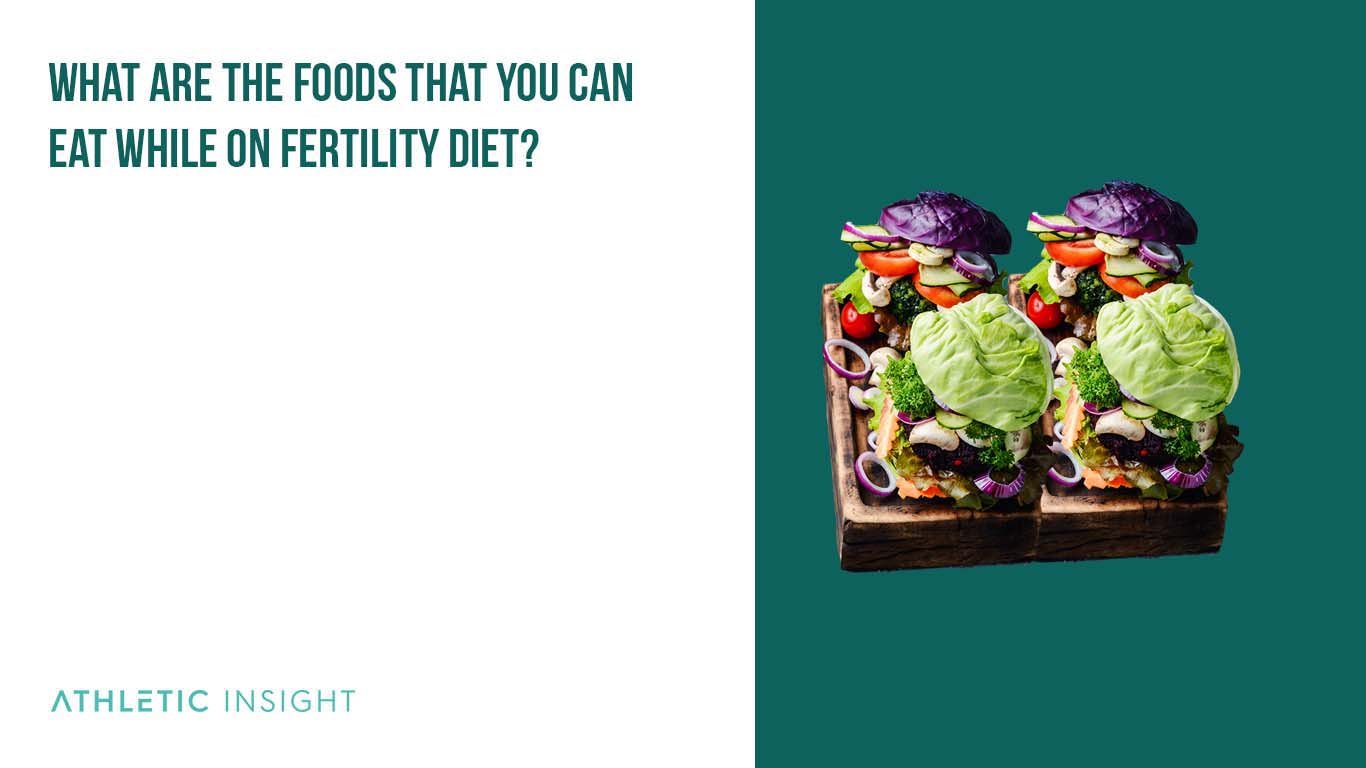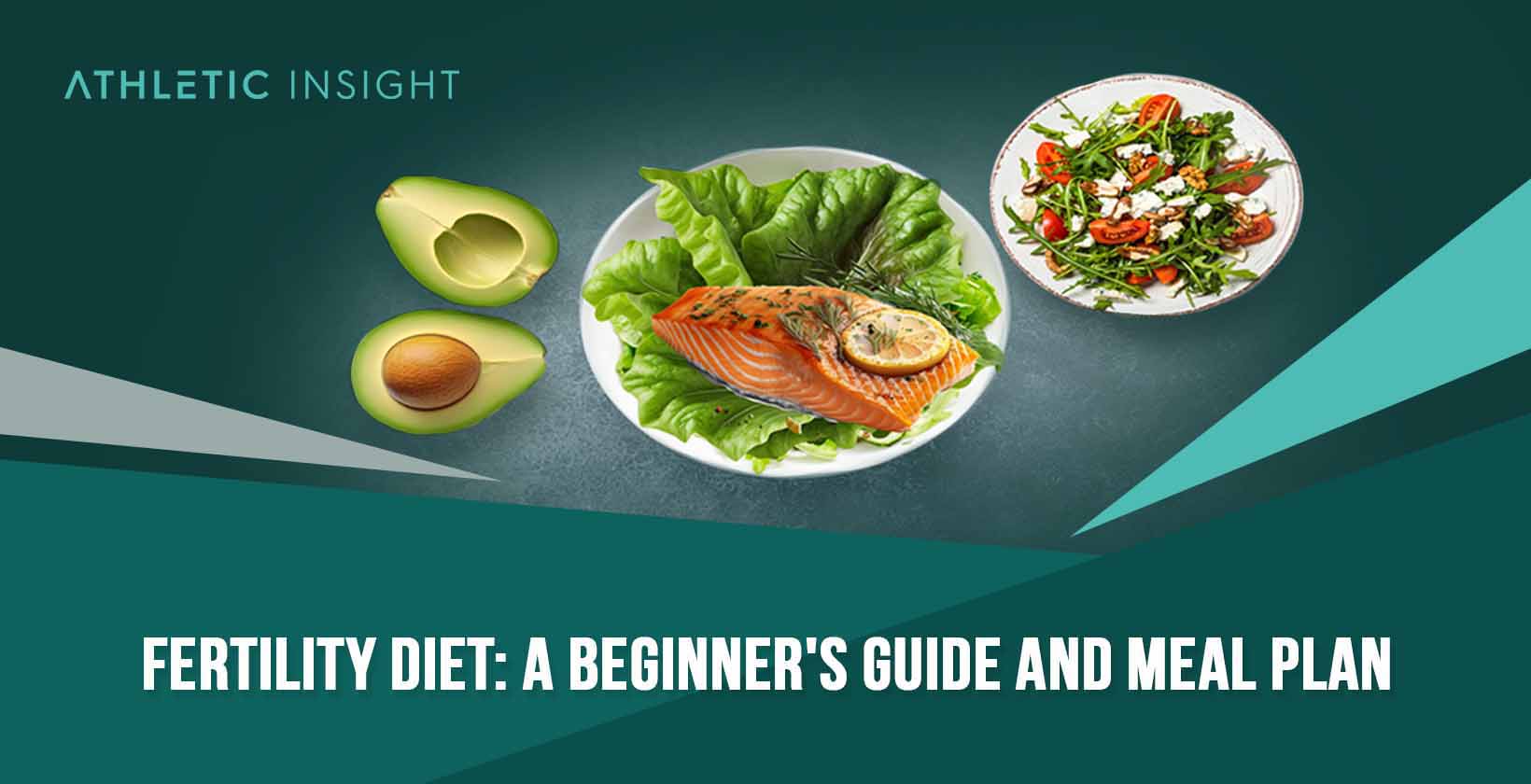Parenthood can be a challenging experience, especially when concerns about fertility arise. The Fertility Diet, a meticulously crafted diet for fertility, can be a potent ally in optimizing fertility and increasing the likelihood of conception.
In this article, you will learn more about the “trying to conceive diet” (fertility diet), discover the foods to consume and avoid for fertility, specific fertility diet for women and men, and uncover a sample meal plan to help you succeed in your quest for parenthood.
What is Fertility Diet?
The Fertility Diet is a comprehensive nutritional diet plan designed to enhance fertility by promoting hormonal balance, improving reproductive health, and fostering an optimal environment for conception. It encompasses a well-rounded fertility diet meal plan, incorporating whole, unprocessed foods, healthy fats, and essential vitamins and minerals crucial for reproductive health.

How does Fertility Diet Work?
The Fertility Diet operates by targeting specific bodily processes and systems integral to reproductive health. It primarily focuses on hormonal regulation and the promotion of a healthy uterine environment, ultimately increasing the odds of successful conception. Here’s the step-by-step process below.
- Consumption of nutrient-dense, unprocessed foods bolsters overall health and nourishes the reproductive system.
- Healthy fats and antioxidants reduce inflammation, enhancing egg and sperm quality.
- Optimal intake of vitamins and minerals, such as folic acid and iron, supports hormonal balance and the menstrual cycle.
- Increased fiber intake aids in the elimination of excess hormones and toxins, promoting a healthy hormonal milieu.
The initial reaction of the body to the Fertility Diet may include improvements in digestion, energy levels, and overall well-being, setting the stage for enhanced reproductive health.
What are the health benefits of Fertility Diet?
Adhering to the Fertility Diet offers numerous health advantages such as promoting hormonal balance and regular menstrual cycles, enhancing egg and sperm quality, improving endometrial health, supporting healthy weight maintenance, and reducing inflammation and oxidative stress.
- Promotes hormonal balance and regular menstrual cycles
- Enhances egg and sperm quality
- Improves endometrial health
- Supports healthy weight maintenance
- Reduces inflammation and oxidative stress
What are the health risks of Fertility Diet?
While the Fertility Diet boasts an array of benefits, some potential risks may arise such as insufficient caloric intake due to dietary restrictions, potential nutrient deficiencies if not carefully planned, and overemphasis on specific food groups, leading to imbalanced nutrition.
- Insufficient caloric intake due to dietary restrictions
- Potential nutrient deficiencies if not carefully planned
- Overemphasis on specific food groups, leading to imbalanced nutrition
How to do Fertility Diet?
To successfully implement the Fertility Diet, follow these key steps below. While some variance is expected, it is best to stick to a similar protocol as the one mentioned below, to ensure better results.
- Focus on consuming whole, unprocessed foods.
- Incorporate lean proteins, healthy fats, and complex carbohydrates.
- Consume a variety of fruits and vegetables, prioritizing those high in antioxidants.
- Opt for high-fiber options, including whole grains, legumes, and vegetables.
- Stay hydrated by drinking ample water and avoiding sugary beverages.
- Minimize or eliminate alcohol, caffeine, and processed foods.
Who should do Fertility Diet?
The Fertility Diet is particularly beneficial for individuals attempting to conceive, experiencing fertility issues, or preparing for fertility treatments. If you are seeking to improve overall reproductive health or hormonal balance, you may benefit from adopting this diet.
What is the proposed time frame for Fertility Diet?
The optimal time frame for the Fertility Diet varies among individuals; however, it is generally recommended to follow this nutritional plan for at least three to six months prior to attempting conception. This duration allows the body ample time to adjust, promoting hormonal balance and enhancing reproductive health.
What are the Best Practices to Follow Fertility Diet?
Maximize the efficacy of the Fertility Diet by adhering to these best practices mentioned below.
- Consult a healthcare professional or registered dietitian for personalized guidance.
- Monitor portion sizes and caloric intake to maintain a healthy weight.
- Incorporate a diverse array of nutrient-dense foods.
- Practice mindful eating, focusing on satiety cues and avoiding overeating.
- Consider taking a prenatal vitamin or other supplements as recommended by a healthcare professional.
How simple is it to follow the Fertility Diet program?
Implementing the Fertility Diet can be relatively straightforward, particularly for individuals accustomed to consuming whole, unprocessed foods. The primary challenge lies in avoiding processed foods, caffeine, and alcohol, which may require significant lifestyle adjustments. However, with dedication, planning, and a focus on overall health, the Fertility Diet can become an integral component of one’s daily routine.
What is a Sample Fertility Diet Plan?
Below is a weekly sample meal plan designed to optimize fertility. While the meal plan below is an example to follow, you can switch for foods that fall within the Fertility Diet protocol if they are foods you want to consume.

- Monday: Baked salmon with quinoa, roasted vegetables, and a mixed greens salad
- Tuesday: Lentil and vegetable stir-fry served over brown rice
- Wednesday: Grilled chicken breast with sweet potato, steamed broccoli, and a side of mixed berries
- Thursday: Spinach and feta stuffed portobello mushrooms with a quinoa and vegetable medley
- Friday: Seared ahi tuna with a mixed greens salad, avocado, and a side of whole-grain crackers
- Saturday: Turkey and vegetable chili served over brown rice with a side of sliced avocado
- Sunday: Baked cod with roasted Brussels sprouts, a mixed greens salad, and fresh fruit for dessert
What are the Best Recipes for Fertility Diet in Women?
Here are five delectable and fertility-boosting recipes you can try today, in the comfort of your own home.
- Almond-Crusted Chicken with Asparagus: A lean protein source paired with fiber-rich asparagus, topped with heart-healthy almonds.
- Beet and Goat Cheese Salad: A colorful mix of antioxidant-rich beets and arugula, complemented by creamy goat cheese and walnuts.
- Quinoa-Stuffed Bell Peppers: Fiber-packed quinoa and an assortment of vegetables nestled in a nutrient-dense bell pepper.
- Grilled Salmon with Mango Salsa: Omega-3-rich salmon served with a refreshing mango salsa, loaded with vitamins and antioxidants.
- Spinach and Artichoke Frittata: A protein and vegetable-rich dish, brimming with vitamins and minerals essential for fertility.
What are the foods that you can eat while on Fertility Diet?
Key foods to consume on the Fertility Diet include various lean proteins, fruits, vegeables, whole grains, healthy fats, and dairy.

- Proteins: Lean meats, fish, poultry, beans, lentils, and tofu
- Fruits: Berries, apples, citrus fruits, and avocados
- Vegetables: Leafy greens, cruciferous vegetables, and a variety of colorful options
- Whole grains: Brown rice, quinoa, barley, and whole-grain bread
- Healthy fats: Nuts, seeds, olive oil, and fatty fish
- Dairy: Low-fat or full-fat dairy products, including yogurt and cheese
Emphasize the consumption of nutrient-dense foods such as dark leafy greens, fatty fish, and antioxidant-rich berries, as they are particularly beneficial for reproductive health.
What are the foods that you should avoid while on Fertility Diet?
You will want to steer clear of the following foods while adhering to the Fertility Diet; processed foods, sugary beverages, refined grains, unhealthy fats, excess caffeine, alcohol.
- Processed foods: Packaged snacks, instant meals, and processed meats
- Sugar-sweetened beverages: Sodas, energy drinks, and fruit juices with added sugar
- Refined grains: White bread, white rice, and pastries
- Unhealthy fats: Trans fats, fried foods, and excessive saturated fats
- Excess caffeine: Limit intake to 200 mg per day (approximately 1-2 cups of coffee)
- Alcohol: Minimize or avoid altogether
These foods should be avoided due to their potential negative impact on hormonal balance, inflammation, and overall reproductive health.
What are the Alternatives to Fertility Diet?
If you are seeking alternative approaches to enhancing fertility, consider the following options; Mediterranean diet, DASH diet, Anti-Inflammatory diet, and the Whole Food diet.
- Mediterranean Diet: A well-researched, heart-healthy diet that shares many similarities with the Fertility Diet
- DASH Diet: Focused on reducing blood pressure and promoting overall health, this diet includes many fertility-friendly foods
- Anti-Inflammatory Diet: By minimizing inflammation, this diet can contribute to improved reproductive health
- Whole Foods Diet: Emphasizing the consumption of unprocessed, nutrient-dense foods, this diet promotes overall health and well-being
What are the facts about Fertility Diet?
Here are five noteworthy facts about the Fertility Diet that you may not have known before.
- Research suggests a link between diet and fertility, with the Fertility Diet being associated with improved reproductive health.
- Optimal fertility can be supported by consuming a variety of nutrient-dense foods, including fruits, vegetables, whole grains, and lean proteins.
- Hormonal balance, crucial for reproductive health, can be promoted through dietary choices.
- During the first week of the Fertility Diet, individuals may experience improved digestion, increased energy, and heightened well-being.
- Combining the Fertility Diet with other lifestyle factors, such as regular exercise, stress reduction, and maintaining a healthy weight, can further enhance fertility.
Does the Fertility Diet work when attempting to conceive?
Yes, the Fertility Diet can be effective when trying to conceive, as it promotes hormonal balance, improves egg and sperm quality, and fosters a healthy uterine environment. However, it is essential to recognize that individual results may vary, and other factors, such as genetics and underlying medical conditions, can influence fertility.
Is Fertility diet combined with Exercise possible?
Yes, combining the Fertility Diet with exercise is not only possible but highly recommended. Engaging in regular physical activity can improve overall health, support hormonal balance, and help maintain a healthy weight, all of which contribute to enhanced fertility. Aim for at least 150 minutes of moderate-intensity exercise or 75 minutes of vigorous-intensity exercise per week, along with muscle-strengthening activities on two or more days per week. Consult with a healthcare professional to determine the most suitable exercise regimen for your individual needs.
Is Fertility diet combined with Supplements possible?
Yes, incorporating supplements into the Fertility Diet can be beneficial, particularly if certain nutrients are lacking in your daily intake. Common fertility supplements for those trying to conceive include prenatal vitamins, folic acid, omega-3 fatty acids, and vitamin D. It is crucial to consult with a healthcare professional before adding any supplements to your regimen, as they can provide personalized recommendations based on your specific needs and circumstances.



